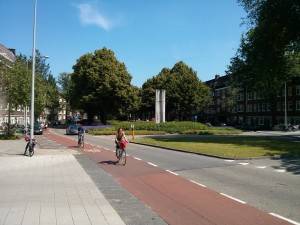Ross Anderson 1956-2024
March 29th, 2024My first interaction with Ross was through his work. In my second year at university a PhD student (David Simner) suggested that reading Ross’ textbook “Security Engineering” was good preparation, and so over the course of a few weeks that autumn I read it cover to cover. Now I am a Senior Lecturer in cybersecurity, and one of the places that began was there. I still recommend that anyone involved in security read the latest edition of that book, because of the way it so clearly and accessibly explains and systematises such a huge breadth of important topics in cybersecurity.
Later Ross was my lecturer, explaining so much, so clearly and engagingly. In those days I still found Ross a little intimidating, but as I got to know him better I discovered how warm, friendly, and caring he was. He became my great grand PhD supervisor (Alastair Beresford <- Frank Stajano <- Ross Anderson), my co-lecturer, my PI, my co-author, my co-conspirator, and my friend.
So many people owe so much to Ross. His broad understanding of cybersecurity that proactively drew in other disciplines and created fields like security economics. His commitment to civil society through the cryptowars, patient privacy, government IT, and civil liberties. His commitment to his family and friends, and his support for disadvantaged people. While much of what he did was very public, some of the most important things were only visible if you got close to him.
He made a huge difference to the careers of many people (including my own), with many of his PhD students and postdocs going on to obtain faculty positions internationally, or other senior roles where they have in turn had a huge impact. He supported a diversity of thought and brought people into the department from a range of disciplines, helping to redefine what computer science is.
He had a huge impact on the University of Cambridge (once named the “most powerful person”) through a range of campaigns and several terms on the University Council. He was ever a critical friend of the Vice Chancellor and played an important role in uncovering various kinds of corruption, mismanagement and discrimination. I learnt a lot from him through that. For a while he chaired the Cycling and Walking Sub Group of the Transport Working Group of which I was secretary. I think our first formal joint work was our proposed policy on cycling and walking, which was completely ignored by the University. He fought with me for the rights of postdocs to continue to be allowed to vote in University democracy (we lost). He was always someone you wanted by your side in a fight.
Ever one to have a memorable turn of phrase, one of the things he achieved in his battles with the central administrators was to plant a little ghost of himself in their heads so that every time they thought of doing something silly (e.g. on IP) the ghost would remind them of what response that would get and so put them off. This saved him a lot of time.
Another memorable description was of the zombie government policies on cryptography, or ID cards, or NHS IT. Ross and others would keep killing these policies off, carrying them away with great fanfare and burying them deep under the ground. Only for the policies to claw their way back out again after the next election.
One of our many great losses is that we will no longer have Ross in our ranks as we fight these good fights. However, many of us carry the memory of Ross, and a model of what he might do. Not that we should necessarily do the same thing, but it is often a helpful starting point.
One of his last battles with the central administrators was over Cambridge’s mandatory retirement age. He didn’t want to retire as he had so much left to do. While he was forced to partially retire in 2023 he had not given up on returning to full time pay (he was still doing full time work). That injustice remains for others to right.
I had hoped that the next government would live to regret appointing Ross to the House of Lords, he would have been good at that and caused some good trouble.
He was not perfect, like all of us he made mistakes, and sometimes enemies, but he was our friend and we loved him. We will miss him. He leaves both a void and a great many people who he trained to fill it.
There is much more I could say and much worth saying that I do not know. He did a lot. He was a giant and he helped us stand on his shoulders. He showed us that humans could be heroes.

